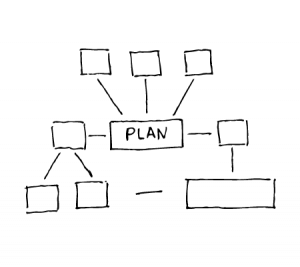Quick, what costs Americans over $2 trillion a year and is growing faster than either inflation or wages?
Give up? Check out a newspaper – it’s usually mentioned somewhere on the front page. Still don’t know? It’s healthcare, the second-largest industry in the United States, and, right now, one of its current top agenda items.
The sheer size of this industry, when coupled with the sweeping policy and demographic changes, has significantly increased the demand for education programs specializing on the growing field of healthcare management.
Mark Allan, MBA faculty director for the Health Sector Management program at Boston University School of Management, sees the policy changes being made in Washington as a determining factor in this increased popularity and relevance.
“In a period like this,” says Allan, “effective, trained managers become more critical. And people who understand how to make the changes that are necessary continue to be successful.”
Allan says that the HSM program- now almost forty years old - has grown rapidly recently, seeing enrollment triple over the past four years alone. In response, the program has shifted and diversified, now offering courses across many healthcare disciplines, including service delivery, bio-pharma, and medical devices.
Marjorie Baldwin, the director for the Masters in Health Sector Management (MHSM) program at Arizona State University’s W.P. Carey School of Business, has also seen a rise in interest, and points to an aging population as one primary cause.
“I think that other forces are going to draw more and more students to these kind of programs,” says Baldwin. “One of them being the Baby Boomer generation that’s starting to retire, and they’re going to need more and more healthcare.”
“And I think that people see the long term care industry, the nursing home industry and so forth, as places that are going to need to expand, and that’s going to attract students,” she adds.
Breaking into the field
Tantalizing as this growing industry may be for people outside of it, many of these healthcare-specific programs are designed expressly for people who have already been working within the industry. For example, BU’s Allan says that about 95 percent of the students in the HSM program have already worked in the health sector, in capacities ranging from clinicians to bio-tech engineers.
“There are many people,” he says, “looking to advance, or to move from the scientific side to the business side.”
Post-graduation, they hope to move up the chain into more management-oriented roles. Kim Solomon, program director for the UC Berkeley Masters in Public Health (MPH) program, says that students studying for the MPH/Haas MBA dual degree program Health Management are usually already from the health industry, but the selection process there is generally more holistic.
“If they’re trying to steer their ship into a new direction,” says Solomon of applicants, “we look at that, as long as all the rest of the indicators for success at Haas and success in the program are high.”
However, ASU’s MHSM program enrolls students from a still wider pool: about 60 percent of its students have already had healthcare experience, whereas the rest come from more varied backgrounds. Baldwin says that many students who come from outside of the industry “want to move into healthcare because they see it as a growing field with a lot of opportunity, but also because they want to work in an industry that really serves people.”
MBAs, MHSMs, and MPHs, oh my!
With all the M-something acronym options out there, the medical management degree field can seem utterly byzantine. Mark Allan believes that, from a student’s viewpoint, the flexibility offered by MBA-based healthcare degrees is a huge advantage.
“An MBA in the health sector is generally very attractive,” says Allan, “because it gives both the MBA, which is the preferred degree, and a specialization in the sector, which has different rules than other industries.”
The MBA also gives flexibility, should the student later decide to change industries. “What I tell students is that if they know they want to work in the health sector, the MHSM is the MBA for the health sector,” says Marjorie Baldwin at ASU.
“But if in the future, they want to work in another industry, then they might want to get the dual (MHSM/MBA ) degree.” MPH degrees are generally less business-focused than MHSMs, unless coupled with an MBA as part of a dual-degree program. MPHs can also be aimed at specific healthcare niches: for example, next year, ASU W.P. Carey will begin offering an MPH focusing on urban health.
Other programs are popping up all over the world, including a brand new healthcare Executive MBA (EMBA) at Nottingham University Business School in the United Kingdom. These offerings are yet more indicators that increased demand is promoting more diversity in programs, which is a good thing for healthcare degree-seekers.
“They always call healthcare recession-proof,” says Kim Solomon at UC Berkeley. That's because regardless of the shape of the economy, “it still needs to chug forward.”
Image: Stethoscopes / Creative Commons (cropped)










